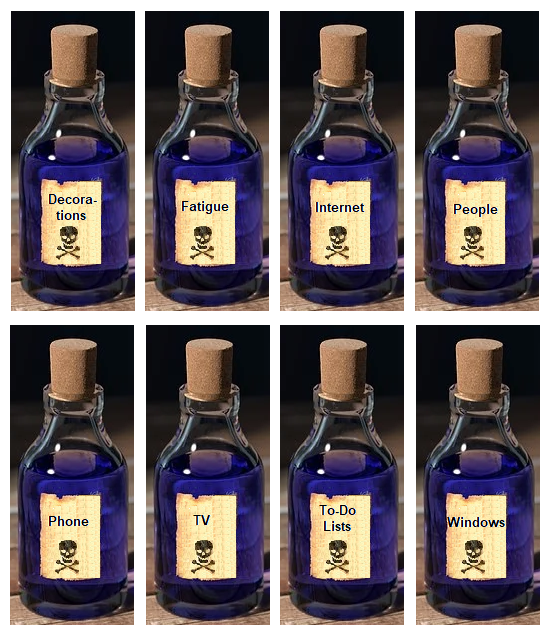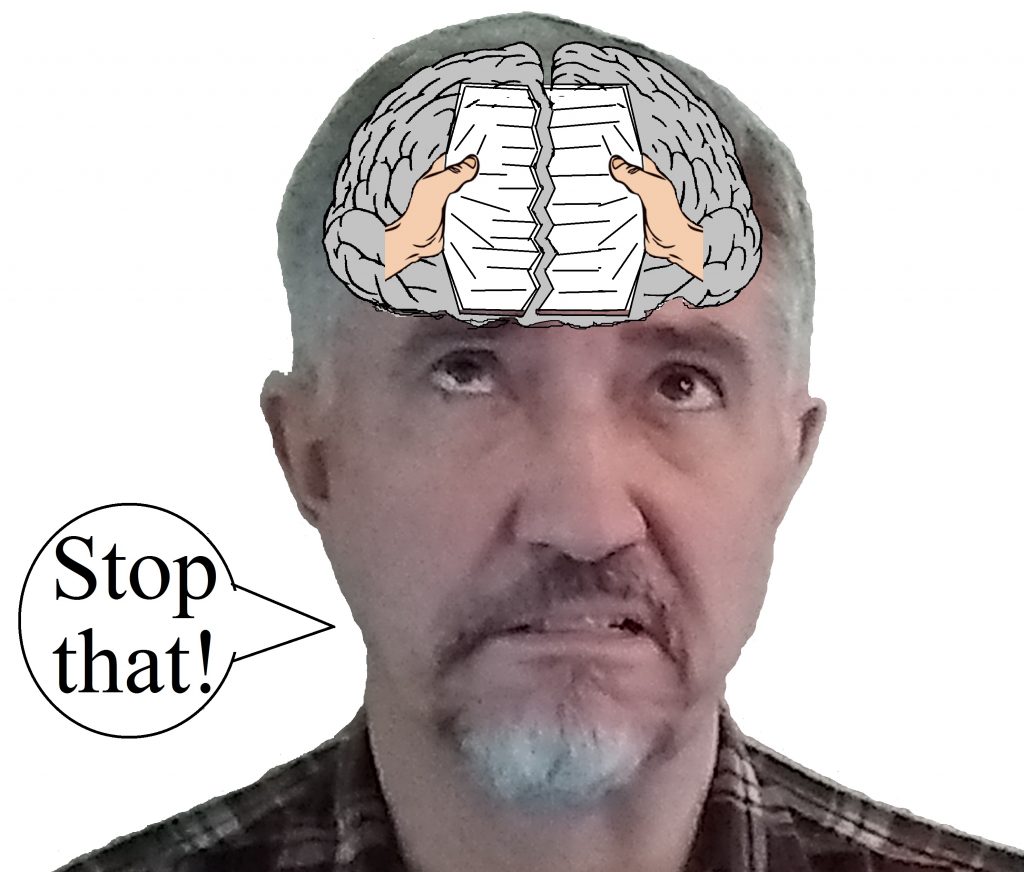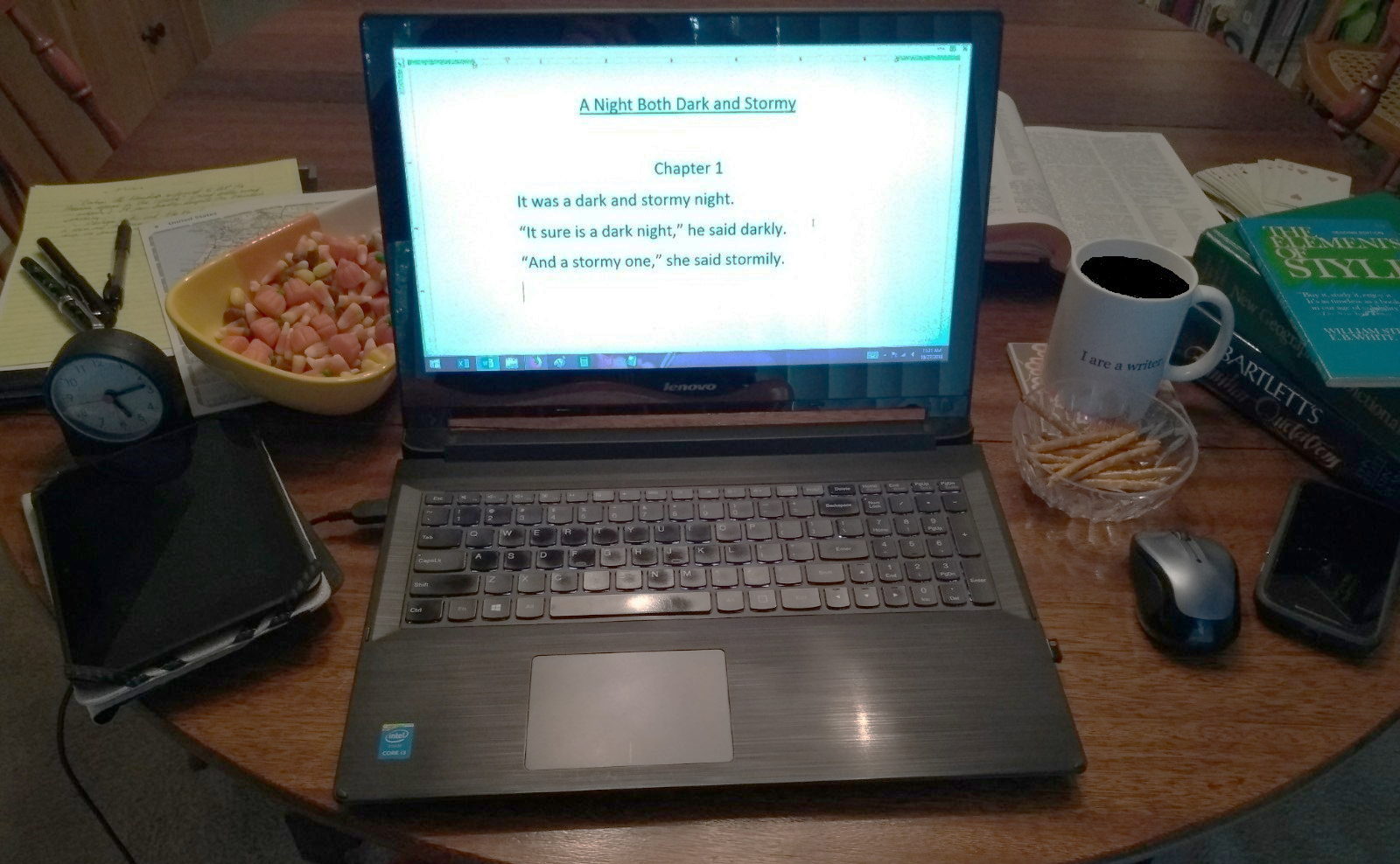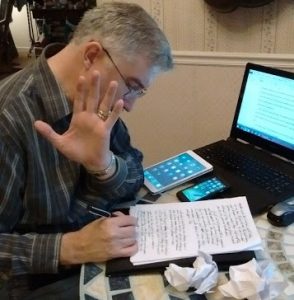Distractions are like poison to writers, interrupting word flow and reducing productivity. They come in various forms, so let’s call them ‘Distractoxins.’ Are there any cures?
First, I must give credit to author Dan Blank, who inspired this post with his hilarious list of writer distraction. Well worth reading.

I came up with my own list of distractoxins likely to interrupt a writer’s work. For each one I’ve got an antidote. You may experience distractions that aren’t on my list, and I’d love to hear about yours. Also, my antidotes aren’t guaranteed for everyone, so please let me know if you have different cures that work for you.
- Decorations. By this I mean other items in your writing room. They include bookshelves, clocks, furniture, lamps, knickknacks, wall pictures, etc. While considering your next sentence, you may fix your eyes on any of these items and your thoughts may drift away from the writing task at hand.
Antidote: Minimize the number of these items in your writing room. Avoid bringing new items in, since your eye will be attracted to any change.
- Fatigue. This needs no explanation. It happens.
Antidote: Stand up, walk around, swing your arms. You could try coffee, tea, or an energy drink but don’t overdo those.
- Internet. This includes social media, videos, email, and all the other attractions of our marvelous internet. Everything there seems so urgent and attention-grabbing, as if designed to distract us.
Antidote: Find a method of writing that limits your contact with the internet. This can include writing with ink on paper or using a typewriter, single-function word processor (like AlphaSmart or FreeWrite), or one of the various distraction-minimizing apps. The latter include Calmly Writer, FocusWriter, Ommwriter, Q10, WriteMonkey, and WriteRoom.
- People. There may be other people in your house, or neighbors, and it seems their mission in life is to interrupt you.
Antidote: There may be little you can do about this, since you may care about these people almost as much as you care about your writing. Still, you can close the door, hang a do-not-disturb sign, and hope for the best.
- Phone. The trouble is, you never know in advance if a call is important or not, but the ringing makes it seem urgent.
Antidote: Yes, you can turn off a phone, and you might have to resort to that. If you don’t want to go that far, then let it ring. Important people leave messages.
- Television. I like to joke that the inventors of TV in the 1920s had nothing to watch; now we have hundreds of channels, yet we suffer from the same problem they did. Not really true—there’s plenty to watch, and your friends and coworkers expect you to talk about favorite shows tomorrow.
Antidote: Every remote has an ‘off’ button. There’s no such thing as must-see-TV.
- To-Do Lists. There’s more to your life than writing, with many tasks to be done. While writing, thoughts of those undone tasks can nag you.
Antidote: This is a time management problem. Schedule time for writing, and for life’s other tasks. Work on higher priority things first, but leave some time for things you enjoy, like writing.
- Windows. Here I’m talking about actual windows, through which you can see the alluring outside world.
Antidote: Curtains or blinds.
The best antidote for any of these distractoxins is to note the signs of onset. You can feel yourself getting sidelined. You can realize it’s a choice you make, not an inevitable happening. Remember: you control your attention. Learn to recognize the moment a distractoxin takes over and, in that instant, make a conscious effort to recall why your writing task was important and imagine how good you’ll feel when you’re done.
Ooh. Excuse me. Shiny object over there. Wait…no…must focus on writing…must apply antidote…must save—
Poseidon’s Scribe



 Your muse, like all of them, isn’t the most focused entity around. Easily distracted by new and shiny objects, she comes up with fresh ideas all the time.
Your muse, like all of them, isn’t the most focused entity around. Easily distracted by new and shiny objects, she comes up with fresh ideas all the time. We live in a distraction-rich environment. Even before the Internet, there were rooms to clean, library books to return, lawns to mow, desk items to straighten, and windows to gaze through. Today, there are Facebook posts to like, tweets to retweet, texts to answer, online stores to shop in, blog posts to read, and new sites to explore.
We live in a distraction-rich environment. Even before the Internet, there were rooms to clean, library books to return, lawns to mow, desk items to straighten, and windows to gaze through. Today, there are Facebook posts to like, tweets to retweet, texts to answer, online stores to shop in, blog posts to read, and new sites to explore.